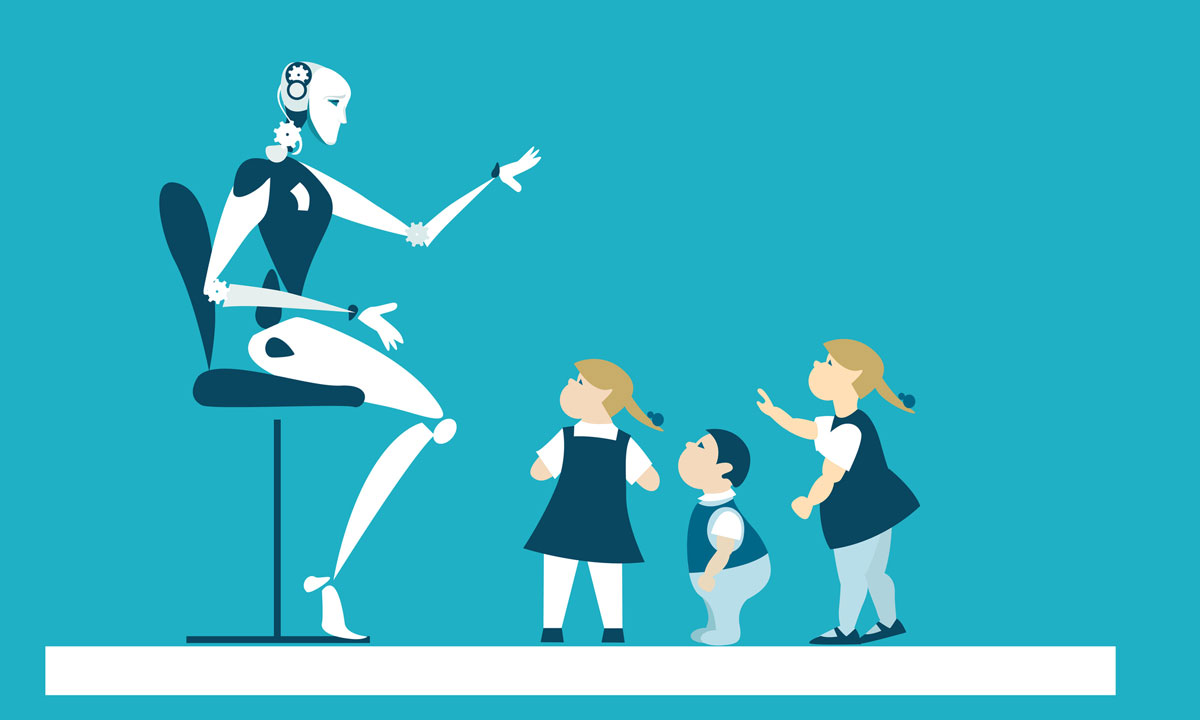Why AI Literacy Instruction Needs to Start Before Kindergarten
Waiting until kindergarten to start teaching AI literacy misses a key window of opportunity.

Join our zero2eight Substack community for more discussion about the latest news in early care and education. Sign up now.
In June, nearly 70 tech companies and associations signed a pledge supporting the Trump administration’s goal of making artificial intelligence education accessible to K-12 students. As a top leader at an early childhood education company and a parent of two children under 5 years old, I can’t help but wonder: What about our youngest learners?
AI is dominating headlines — and rightly so. It’s reshaping industries, redefining work and increasingly influencing homes and childhoods. But as policymakers and technologists rush to prepare K-12 schools for an AI-powered future, they risk overlooking a critical window: the early years, when children’s brains are developing faster than at any other point in life.
My own kids, who are 2 and 4 years old, are AI natives. They follow the blue dot on Google Maps, thank the car when it welcomes us across state lines and ask Spotify to play their favorite songs. They recently had a lively conversation about a Roomba they saw vacuuming the office building across the street. They’ve followed a virtual trainer through an “intelligent” home workout. And when my son asked to see a parrot with pigeon wings, DALL-E helped make it real.
Their ease with AI is both fascinating and a little unsettling. To them, machines are as trustworthy as parents or teachers. As a tech-forward parent, I welcome these tools, but I also teach my children a critical distinction: technology is a helper, not a human.
That distinction is already blurring. Voice assistants and recommendation engines sound authoritative, even when they’re wrong. And without early education on how AI works and where its limits lie, the youngest generation is at risk of growing up to trust machines without question. This is especially concerning for children with learning differences, who may be more likely to anthropomorphize technology and treat machines as social beings, according to research.
To its credit, the executive order that inspired the pledge recognizes a real need: America’s youth must be prepared to thrive in an AI-driven world. But waiting until kindergarten misses a key window of opportunity. The foundational skills that matter most, especially in a post-AI world — creativity, critical thinking, empathy, resilience — start to take root long before formal schooling begins.
Teaching AI literacy to 3- and 4-year-olds may seem premature, but with companies like Google offering the Gemini chatbot to children under 13, it’s more important than ever to start early. Young children are remarkably capable of understanding complex ideas when taught in developmentally appropriate ways. At my children’s preschool in New York City, they’ve learned about skyscrapers and even touched on the events of 9/11. When wildfire smoke from New Jersey recently polluted the air, they discussed climate and health. If I can trust their teachers to guide these complex conversations, I can trust them to begin introducing the concept of AI in ways that are meaningful to my children.
Supporting early AI literacy doesn’t mean more screens for toddlers. It means fostering the human skills that will help young children thrive in a machine-filled world. But who will teach these skills? Parents play an essential role and deserve access to helpful resources, but early childhood educators are especially well-positioned to lead developmentally appropriate conversations on these concepts. And publicly funded early childhood programs, like NYC’s Pre-K for All, can provide the structure and scale needed to ensure all young children are supported, not just those with tech-forward parents.
The challenge is, most early childhood educators have not been introduced to the concept of AI literacy themselves. As national efforts — such as the new $23 million National Academy for AI Instruction, launched earlier this month by the American Federation of Teachers (AFT) — prepare to train K-12 teachers, early childhood educators are being left out of the conversation entirely.
If we want to build the strongest foundation for AI literacy, we need to start earlier. As economist James Heckman has shown, high-quality early learning programs can yield a 13% annual return on investment. Head Start, which reaches nearly 800,000 children from low-income families across the U.S. through a two-generation approach, presents a powerful opportunity to advance AI literacy early and at scale.
One of Head Start’s unique strengths is its Early Learning Outcomes Framework, which outlines five key domains of early learning and serves as a foundational guide for state-level early learning standards. Embedding elements of AI literacy within this widely adopted framework could help ensure inclusive access to essential digital skills. By integrating AI concepts into play-based learning, educators, children and caregivers can engage with technology in thoughtful, confident ways.
Imagine an early childhood classroom where teachers and children discuss: What can machines do? What can’t they do? Why do they sometimes make mistakes? These simple questions can grow into the digital discernment our future demands.
AI isn’t coming, it has already arrived and it’s changing how our children learn, play and create. With the right support from our early care and education system, children can be ready to thrive in a world we’re only beginning to imagine.
Get stories like these delivered straight to your inbox. Sign up for The 74 Newsletter


;)
